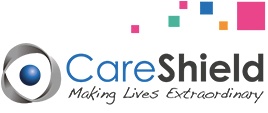It is important that all employers have a guide in place to help staff in the transition of the nmc revalidation and help raise awareness for Nurses and midwives.Senior staff members must recognise the implementation and changes the new nurse revalidation will have on current requirements.
By creating a workflow, and an easy to follow guide which aligns with the NMC Revalidation procedure, will help your staff with the overall process and can vastly reduce their stress levels and make a much easier transition.
All line managers must be aware that they will act as the confirmers and reflective discussion partners for staff through the process of nmc revalidation and, when using the nurse revalidation tool, they must sign off members of staff who have completed revalidation and set a new revalidation date.
Time slots must be made for staff for when they need to perform their reflective discussions and confirmation discussions.
Time must also be set aside for revalidation renewal dates and to be agreed from both the employer and the nurse.
It is also vital that all staff members have access to IT equipment and for the employer to give additional information about who within the company will be a confirmer / reflective discussion partner, as this is noted within the NMC's requirements.
The employer must also remind their staff of the agreements of confidentiality under the legislation of Code and Data Protection.
TOP TIPS FOR YOUR STAFF:
- Firstly, DON’T PANIC!
- Give yourself plenty of time to complete your NMC revalidation. Remember to allow the sub-conscious part of your mind to prepare your reflective pieces.
- Ideally, set up an NMC account, and know your renewal date!

- You must be organised. Decide how you are going to collect your evidence for revalidation for nurses, i.e., electronically or paper-based.
- If your revalidation is drawing closer, don’t leave it until last minute to get your appointment booked.
- Consider who will act as your reflective discussion partner(s) and confirmer.
- Ideally, speak to someone who has gone through the process already. Ask them lots of questions to ensure you fully understand the process and, hopefully, relieve any stress you are feeling.
- Consider how you will gather your feedback and how you will reflect on it. Perhaps you an access feedback where it already exists, i.e., audits, satisfaction surveys, complaints, incidents, your annual appraisal, supervisions sessions, etc.
- Record any CPD you undertaken and decide how it relates to the Code. Do this as soon after the event / activity to ensure it is fresh in your memory and you do not leave out important parts.
- Don’t feel you have to make your reflective accounts lengthy. Keep to the point and, as long as it shows how you are reflecting and that the learning outcomes are clear, they will be fine.
- Ensure your reflections and your feedback are linked to the NMC Code.
- Don’t just read articlesbefore your revalidation is due; take the time to digest some throughout the year and save them on your computer. It’s also a good idea to make notes as and when you read them, so that you can come back to your reflections in the future.
- Look out forsupport groups, forums and interactive sessions. They’ll often be conducted by senior nurses or revalidation experts that have undergone the process or know it inside out.
- Collect feedback from colleagues and people that you have worked with. If you have a good rapport with a patient, ask them for some feedback, but always get consent first.
- ONCE AGAIN…. DON’T LEAVE IT TO THE LAST MINUTE! – collect your evidence and save it throughout the year




